Find a free business bank account for your business type
A business bank account is a separate bank account from your personal one that you maintain just for your business. These accounts are more tailored to business banking, so you can integrate accounting tools, make invoices and categorise your expenses. Some accounts are limited to certain types of businesses, so you’ll need to check that your business is eligible to have an account with your chosen bank.
Some articles on the site contain affiliate links, which provide a small commission to help fund our work. However, they won’t affect the price you pay or our editorial independence. Read more here.
Best free business accounts
 Business Bank Accounts
Business Bank Accounts
 Customer rating
4.7/5
Customer rating
4.7/5
- Monthly fee£0
- Cash deposit fee0.95% fee on cash deposits
- Fee for transfers in/out0.95% fee on money paid in (except from your own accounts)
- Access Online or via app
- FSCS Protected? No
- Cash withdrawals Unlimited free withdrawals
- Integration with accounting tools Share access with your accountant or sync with accounting software
- Invoicing tools Yes
- Eligible companies Registered limited companies, Limited Liability Partnerships or sole traders
 Customer rating
4.9/5
Customer rating
4.9/5
- Monthly fee£0
- Cash deposit fee£1 per deposit
- Fee for transfers in/out£0
- Access Online or via app
- Cash deposits £1 per deposit at any UK PayPoint or Post Office
- FSCS Protected? Yes
- Cash withdrawals Withdraw up to £1,000 per day
- Integration with accounting tools Not available - Integration only available with Monzo Pro and above
- Invoicing tools No
- Eligible companies Sole traders and registered limited companies
 Customer rating
4.7/5
Customer rating
4.7/5
- Monthly fee£0
- Cash deposit fee0.5% (min £2.50) at Post Office, 3% at PayPoint
- Fee for transfers in/outFree transfers in/out for 12 months
- Access Online or via app
- FSCS Protected? Yes
- Cash withdrawals £1 per withdrawal
- Transfers Transfers cost 20p per transfer after a 12 month promotional period
- Integration with accounting tools Connect your own accounting software or export transactions to share with your accountant for free
- Invoicing tools Yes - send 3 per month free
- Offer details Get £100 in cash when you open a Tide Business Account and spend £1,000 within 60 days of account opening. Use the code BCA100 when you sign up.
- Eligible businesses Registered limited companies or sole traders
 Customer rating
4.9/5
Customer rating
4.9/5
- Monthly fee£0
- Cash deposit fee0.7% (min £3)
- Fee for transfers in/out£0
- Access Online or via app
- FSCS Protected? Yes
- Cash withdrawals 6 free withdrawals per day up to a maximum of £300
- Integration with accounting tools Can be connected to accounting software
- Invoicing tools Yes
- Eligible companies Limited companies, Limited Liability Partnerships or sole traders

Mettle Business Bank Account

 Customer rating
4.9/5
Customer rating
4.9/5
- Monthly fee£0
- Cash deposit fee£0
- Fee for transfers in/out£0
- Access Online or via app
- FSCS Protected? Yes
- Cash withdrawals Free
- Integration with accounting tools Access to FreeAgent and connect to other accounting software
- Invoicing tools Yes
- Eligible businesses Sole traders and limited companies with no more than two owners
 Customer rating
4.9/5
Customer rating
4.9/5
- Monthly fee£0
- Cash deposit fee0.55% (min £4)
- Fee for transfers in/outFree to receive, send for free three times each month, 35p afterwards
- Access Online or via app
- FSCS Protected? Yes
- Cash withdrawals £2 per withdrawal
- Card issuing fee £9.95 one-off fee
- Integration with accounting tools Connect your chosen accounting software
- Invoicing tools Yes
- Eligible businesses Sole traders and limited companies
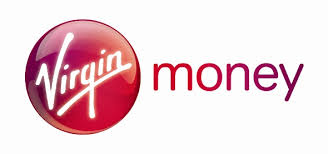
Virgin Money M Account for Business

 Customer rating
3.6/5
Customer rating
3.6/5
- Monthly fee£0
- Cash deposit fee£0.90 fee per £100
- Fee for transfers in/out£0
- Access Online or via app
- FSCS Protected? Yes
- Cash withdrawals £0.90 fee per £100 withdrawn. Withdraw up to £700 per day.
- Integration with accounting tools Can be connected to accounting software
- Invoicing tools No
- Cashback 0.25% cashback on debit card purchases
- Offer details You can get 3 months of Xero or Quickbooks for free with a Virgin Money business account.
- Eligible companies For businesses with an annual turnover of less than £1m

SumUp Business Account

 Customer rating
3.9/5
Customer rating
3.9/5
- Monthly fee£0
- Cash deposit feeNot available
- Fee for transfers in/out£0
- Access Online or via app
- FSCS Protected? Yes
- Cash withdrawals 3 free per month, 2% thereafter
- Integration with accounting tools Can be connected to accounting sotware
- Invoicing tools Yes
- Eligible companies Sole traders or limited companies
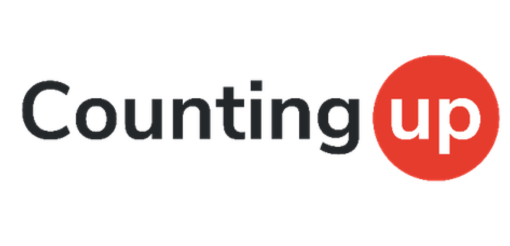
Countingup Business Bank Account

 Customer rating
4.9/5
Customer rating
4.9/5
- Monthly fee£3-£18 per month
- Cash deposit feePost Office: 0.5% (£2 min) / PayPoint: 3%
- Fee for transfers in/out30p
- Access Via app
- FSCS Protected? No
- Cash withdrawals £1 per withdrawal
- Integration with accounting tools Fully integrated accounting tools
- Invoicing tools Yes
- Eligible businesses Sole traders or registered limited companies
- Fee details After the 3 month free trial, you'll pay a monthly fee depending on how much you deposit each month. Deposits up to £750: £3 per month; Deposits up to £7,500: £9 per month; Deposits over £7,500: £18 per month

Amaiz Business Bank Account

 Customer rating
4.6/5
Customer rating
4.6/5
- Monthly fee£0
- Cash deposit feeNot available
- Fee for transfers in/outFree (FPS transactions)
- Access Online or via app
- FSCS Protected? No
- Cash withdrawals Unlimited free withdrawals
- Integration with accounting tools No
- Invoicing tools Yes
- Eligible businesses For companies of all sizes and risk categories
Do you need a business bank account?
If you’re a sole trader or just earning extra via a side hustle then you don’t need to have a specialist business bank account. You can make do with a standard (and free) personal account.
You don’t have to use the same one you bank with day-to-day. It’s generally best to separate your business money from your personal cash, so it’s best to open a new account — it’s up to you whether you stick with the same bank you use for your personal banking or try a different one. Keeping them separate will be useful when it comes to doing your tax return and working out which purchases were business-related.
But, if you are part of a Limited Company then you’ll have to have a specific business account.
Get the best of our money saving content every week, straight to your inbox
Plus, new Quidco customers get a high paying £18 welcome offer

What to look out for when searching for a business bank account
When choosing a business bank account there will be a few differences from regular bank accounts that you’ll want to consider.
Fees
You’ll be more likely to come across fees with these bank accounts. We’ve shown the free accounts above, although this refers to whether there’s a monthly fee. The other fees you might come across include:
- Initial set-up fee
- Cash deposit fees
- Cash withdrawal fees
- Transaction fees
- Fees for payments in
- Fees for transfers out
It’s important to consider what your business is likely going to need. For example, if you take a lot of cash payments, you might be more interested in getting free cash deposits, while a company that doesn’t handle cash much wouldn’t be bothered about cash deposits.
Eligibility
Some accounts aren’t available for all businesses. If you have a Limited Liability Partnership, for example, you’ll have fewer choices when it comes to business bank accounts. Check out “eligible companies” in further details above for an overview. You’ll also want to double-check with the bank directly. Generally speaking, sole traders and limited companies should be eligible for all of the accounts above, although there are often excluded business types.
Cash deposits
Many of the business bank accounts listed above are digital banks, which means there isn’t a high street branch for you to deposit cash into your account, however, most of them will let you deposit cash at the Post Office or using PayPoint. Some have associations with high-street banks — for example, Mettle is owned by NatWest so you can pay in cash at NatWest branches.
Integration
A lot of business bank accounts offer integration with accounting software like Xero or Quickbooks. Or, they’ll offer the option to export your transactions to give your accountant or upload them into your chosen software. If you don’t have accounting software, you probably wouldn’t need this, although it may be useful in the future.
Some business bank accounts come with a free trial of accounting software. While this is worthwhile if you think you’ll need accounting software, remember to cancel it if you don’t think it’s something you’ll need.






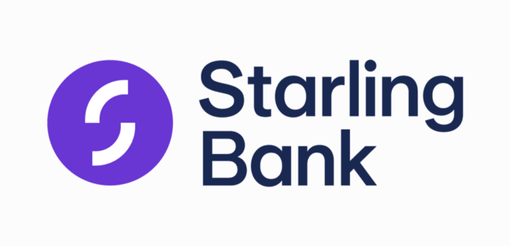
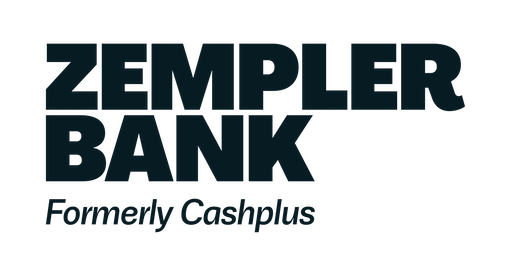
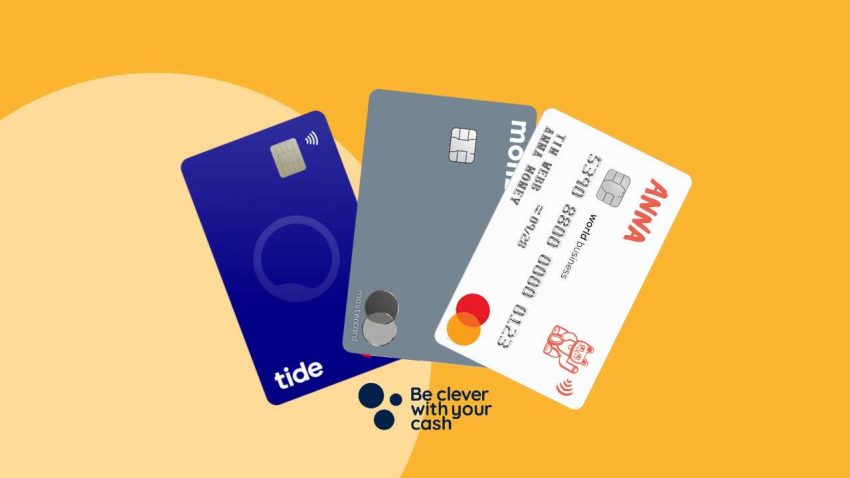

Apparently Tide BANK accounts are now protected under FSCS, but not their e-money accounts, which they say don’t require it.
According to Tide’s website:-
”
Q: Is my money safe with Tide?
A: Yes.
If you have a ClearBank account, then eligible deposits, up to £85,000*, are protected by the UK Government’s deposit guarantee scheme, the Financial Services Compensation Scheme (FSCS).
If you have an e-money account, then the funds in your account are stored and protected. With an e-money account, your money is never invested or loaned out and is safeguarded in accounts that keep your money separate from the money we use to run Tide. As your funds are safeguarded, FSCS protection does not apply.
*Eligible deposits with ClearBank are protected up to a total of £85,000 by the Financial Services Compensation Scheme (FSCS), the UK’s deposit guarantee scheme. This limit applies to the total of any deposits you have with ClearBank. Any total deposits you hold above this limit are unlikely to be covered.
“